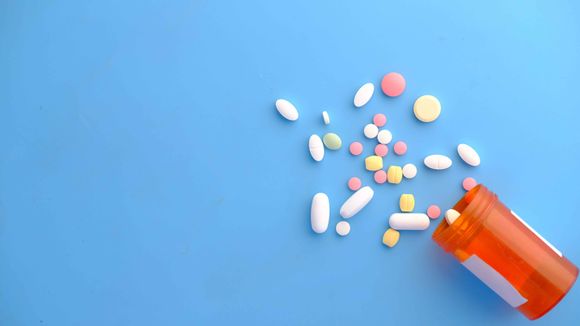Symptoms associated with high INR
High INR, or International Normalized Ratio, refers to an elevated level of blood clotting time. It may be asymptomatic or present with the following symptoms:
- Easy bruising
- Prolonged bleeding from minor cuts
- Heavy menstrual bleeding
- Hemorrhagic stroke
- Blood in urine or stool
- Nosebleeds
- Swelling and pain in the affected area
Causes of high INR
There are several diseases and conditions that can cause high INR. Some of these include:
- Consult a hepatologist or gastroenterologist for liver-related issues
- Liver diseases such as cirrhosis or hepatitis can impair the production of clotting factors, leading to a high INR
Vitamin K deficiency:
- Consult a nutritionist or dietitian for guidance on dietary changes
- Vitamin K is essential for the synthesis of certain clotting factors, and deficiency can result in an elevated INR
Hemophilia:
- Consult a hematologist for diagnosis and treatment
- Hemophilia is a genetic disorder that results in impaired blood clotting, leading to a high INR
Disseminated Intravascular Coagulation (DIC):
- Consult a hematologist or critical care specialist for diagnosis and treatment
- DIC is a condition characterized by widespread blood clotting and bleeding, resulting in high INR

Photo by Towfiqu barbhuiya on Unsplash
Side effects of medical drugs causing high INR:
Several medications can lead to a high INR. Some of these include:
- Warfarin: an anticoagulant used to prevent blood clots
- Heparin: another anticoagulant used in hospitals for various reasons, including preventing deep vein thrombosis
- Nonsteroidal anti-inflammatory drugs (NSAIDs): such as ibuprofen, which can increase the risk of bleeding
Herbal and natural remedies
Herbs and natural treatments can be used to manage high INR. Some of these include:
Ginkgo biloba (Ginkgo biloba):
- Known for its antioxidant and anti-inflammatory properties
- May help improve blood circulation
Horse chestnut (Aesculus hippocastanum):
- Traditionally used to treat venous insufficiency and varicose veins
- May help reduce inflammation and improve blood vessel health
- Has blood-thinning properties that can help prevent clot formation
- Possesses antioxidant and anti-inflammatory benefits

Photo by Georg Eiermann on Unsplash
Suggestions for changing bad life habits causing high INR
- Maintain a balanced diet rich in vitamin K to support healthy clotting
- Exercise regularly to promote blood circulation and overall cardiovascular health
- Limit alcohol consumption, as excessive intake can negatively affect liver function and clotting factors
- Manage stress through mindfulness practices, such as meditation or yoga
Questions and Answers
Below are 10 frequently asked questions related to high INR that are not covered in the article:
Q: What is a normal INR range?
A: A normal INR range is typically between 0.8 and 1.2 for healthy individuals not on blood-thinning medications.
Q: Can certain foods affect my INR levels?
A: Yes, foods high in vitamin K, such as leafy green vegetables, can affect INR levels. It is essential to maintain a consistent vitamin K intake while on blood-thinning medications.
Q: How often should I have my INR checked?
A: The frequency of INR testing depends on your medical condition and the medications you are taking. Consult your healthcare provider for specific recommendations.
Q: Can dehydration affect my INR levels?
A: Yes, dehydration can potentially increase INR levels. Staying well-hydrated is essential for overall health.
Q: Is it safe to consume alcohol while taking blood-thinning medications?
A: Consuming moderate amounts of alcohol is usually acceptable, but it's crucial to discuss this with your healthcare provider, as excessive alcohol consumption can negatively impact liver function and clotting factors.
Q: Can high INR levels be a temporary condition?
A: Yes, high INR levels can be temporary due to factors such as medication adjustments, dietary changes, or illness. Regular monitoring and communication with your healthcare provider can help manage these fluctuations.
Q: How can I lower my INR levels naturally?
A: Consistently consuming a balanced diet rich in vitamin K, exercising regularly, and staying well-hydrated can help lower INR levels naturally. Consult your healthcare provider before making any significant changes to your diet or lifestyle.
Q: Can stress affect my INR levels?
A: While stress does not directly affect INR levels, it can indirectly impact your overall health and contribute to fluctuations in INR. Practicing stress management techniques is essential for overall well-being.
Q: Are there any over-the-counter supplements that can affect INR levels?
A: Yes, some supplements, such as vitamin E, fish oil, and coenzyme Q10, can potentially interact with blood-thinning medications and affect INR levels. Consult your healthcare provider before starting any new supplement.
Q: Can I take blood-thinning medications during pregnancy?
A: Some blood-thinning medications, such as warfarin, are not recommended during pregnancy due to potential risks to the developing fetus. If you require blood-thinning treatment during pregnancy, consult your healthcare provider for alternative options.

